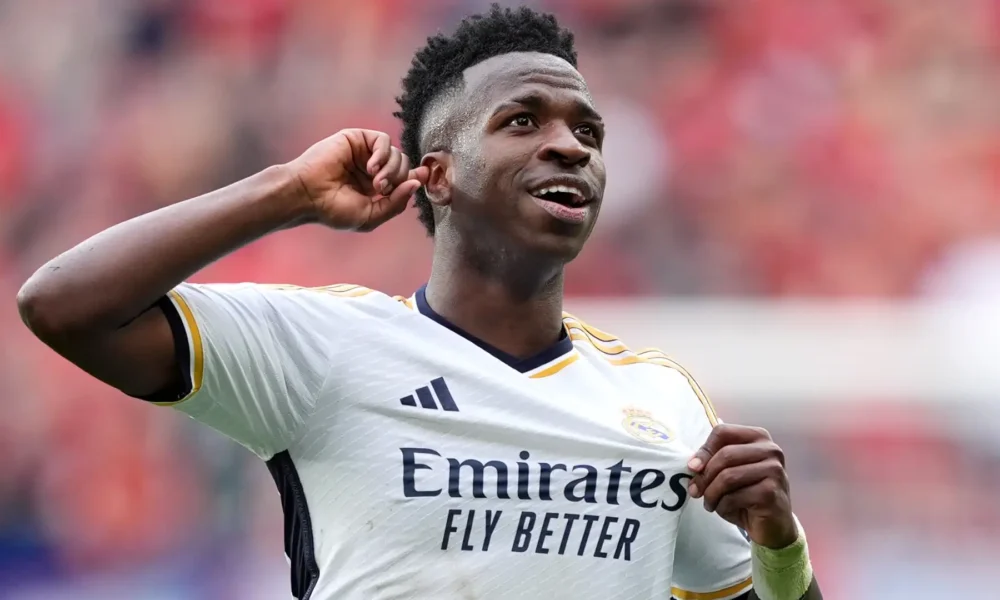Real Madrid is intensifying efforts to secure the future of its star forward Vinicius Junior in the face of growing interest from Saudi Arabian clubs. Following the Brazilian’s recent accolades, including FIFA The Best and Globe Soccer awards, the club has reportedly set an internal deadline to finalize his contract renewal by the summer. This move aims to solidify Vinicius’ position within the team while preventing any potential attempts by Saudi clubs to lure him away with lucrative offers.
Vinicius, who remains a pivotal figure at the Santiago Bernabéu, has a contract valid until 2027, featuring a €1 billion release clause—a seemingly impregnable safeguard. However, the immense financial clout of Saudi Arabian clubs represents a significant challenge, as they aim to bolster their domestic league’s global standing and elevate the country’s image ahead of the 2034 World Cup. Madrid’s management is keen to preempt any such advances by initiating early negotiations over personal terms.
The club’s strategic focus on retaining Vinicius also coincides with the anticipated arrival of Kylian Mbappé, who could potentially take on a more central role in Real Madrid’s long-term plans. Despite this, Vinicius remains irreplaceable in Madrid’s attacking lineup, making his contract extension a top priority.
Vinicius’ existing deal, signed during his last renewal, places him among Real Madrid’s highest earners with a net annual salary exceeding €10 million. However, the arrival of Mbappé from Paris Saint-Germain last summer significantly raised the bar for player salaries, creating an opportunity for Vinicius to renegotiate terms and narrow the gap between his earnings and those of the French superstar.
As the current season approaches its conclusion, negotiations are expected to begin in earnest. With the Brazilian forward enjoying a commanding position, Real Madrid faces the challenge of balancing its financial strategy while securing the future of one of its most prized assets. This renewal not only underscores the club’s commitment to retaining world-class talent but also highlights the evolving dynamics of football’s global marketplace, where financial power increasingly shapes competitive landscapes.

